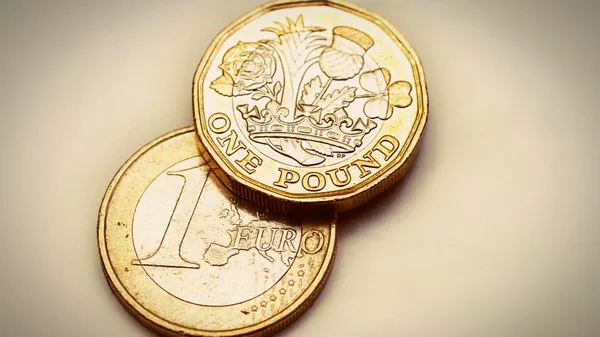The euro, the currency used by the majority of European countries, has been steadily gaining strength against other major currencies like the US dollar and the British pound. This trend has left many investors and analysts wondering why the euro is getting stronger and what factors are driving this change.
In this article, we will explore the various reasons behind the recent strength of the euro. We will examine economic indicators, political factors, and other influences that have contributed to this trend.
Economic Indicators
One of the primary factors contributing to the strength of the euro is the overall health of the European economy. In recent years, the Eurozone has experienced a period of sustained growth and low inflation, leading to increased investor confidence in the region.
Several economic indicators can be used to measure the health of the European economy. The first is GDP growth, which measures the increase in the value of goods and services produced in a country over a specific period. According to Eurostat, the EU’s statistical office, the Eurozone’s GDP grew by 4.2% in the second quarter of 2021, indicating a strong recovery from the pandemic-induced recession.
Another key indicator is unemployment rate. The unemployment rate in the Eurozone has been steadily declining since its peak in 2013, reaching 7.5% in April 2021, which is the lowest level since February 2020. This demonstrates that Europe’s job market is recovering from the pandemic-related disruption, which bodes well for the region’s economic prospects.
Inflation is another important factor that affects the strength of a currency. The European Central Bank (ECB) aims to maintain an inflation rate of around 2%. While inflation in the Eurozone has been below this target in recent years, it picked up in May 2021, reaching 2%, indicating that the economy is gradually returning to normalcy.
Overall, several economic indicators point towards a healthier Eurozone economy, which is one of the primary reasons behind the euro’s strength.
Political Factors
Another factor that is contributing to the euro’s strength is the region’s political stability. The European Union (EU) has been able to maintain a level of political harmony and cooperation despite its diverse member states’ different cultural, linguistic, and economic backgrounds.
The recent Brexit referendum has also played a role in strengthening the euro. Following the UK’s decision to leave the EU, there was widespread concern about the negative impact on the Eurozone’s economy. However, this has not materialized, and instead, the Eurozone has remained relatively stable while the UK struggles to establish its post-Brexit position.
Furthermore, the recent election of Joe Biden as President of the United States has led to increased investor confidence in Europe. President Biden’s stance on international trade and climate change has been a positive development for the Eurozone’s economy, leading investors to shift their focus to the region.
Other Influences
There are other factors apart from the economic and political ones that are also driving the strength of the euro. One such influence is the global shift towards renewable energy. As countries worldwide move towards clean energy, the demand for oil decreases, reducing the value of currencies heavily dependent on oil exports like the US dollar and the British pound. This shift has resulted in investors looking for alternatives, with the euro benefiting from this trend.
Another factor is the overall weakening of the US dollar, which has experienced a prolonged period of decline in value compared to other major currencies. This decline is primarily due to the massive stimulus spending by the US government to counter the effects of the COVID-19 pandemic. As more dollars are injected into the economy, the currency loses value, making it less attractive to investors.
Conclusion
Several factors have contributed to the euro’s recent strength against other major currencies. The Eurozone’s strong economic indicators, political stability, and increased investor confidence resulting from global shifts towards renewable energy and the weakening of the US dollar are all significant contributors.
While the euro’s strength is undoubtedly positive for the Eurozone’s economy, it also presents some challenges. A stronger currency makes exports less competitive as they become more expensive for foreign buyers. The ECB must balance these factors to maintain economic growth while ensuring stability in the currency markets.
Overall, the recent strength of the euro is a promising sign for the Eurozone’s future. As long as the region continues to maintain good economic health and political stability, the euro is likely to remain a strong and stable currency.


